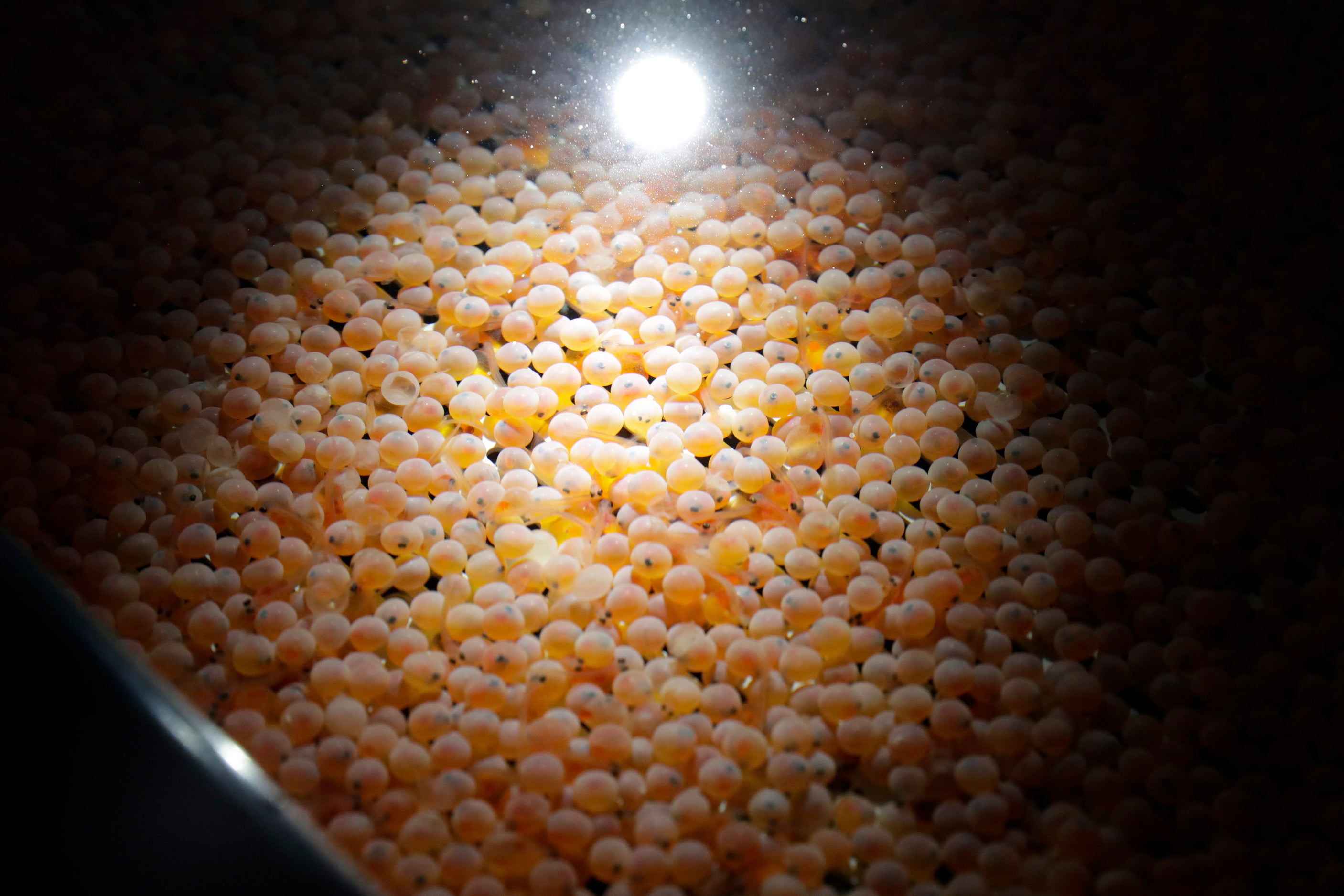Court orders FDA to assess environmental impact of GM salmon
A federal judge has ordered the Food and Drug Administration to assess the potential environmental impact of genetically modified salmon previously approved by the agency

A federal court judge ordered the U.S. Food and Drug Administration on Thursday to conduct an environmental assessment of genetically modified salmon that he said was required for the agency’s approval of the fish.
But the judge did not vacate the FDA’s approval of the salmon for human consumption in the meantime, because he said the risk for near-term environmental harm is low.
“The FDA has to go back to the drawing board and do its homework,” said George Kimbrell, legal director for the Center for Food Safety, one of the groups that filed suit challenging the agency s approval of the genetically modified salmon.
The ruling by U.S. District Court Judge Vince Chhabria in San Francisco centers on AquaBounty’s salmon, which are genetically modified to grow faster than normal salmon. In 2015, the fish became the first genetically modified animal approved for human consumption in the U.S. After clearing other regulatory hurdles. AquaBounty began growing the fish in indoor tanks at an Indiana plant last year.
In an email Thursday, a representative for AquaBounty noted that the ruling covered the potential environmental impact of the fish, and not the health and safety of eating them. The company said the salmon are not yet being sold in the U.S.; it had previously said the fish could be in the market by late this year.
A representative for the FDA did not immediately respond to a request for comment.
To ensure the fish do not escape and breed with wild fish, Massachusetts-based AquaBounty says its salmon are raised in tanks and bred to be female and sterile.
But advocacy groups maintain the company’s own tests have shown it’s not 100% certain the fish would be sterile, and that the risk of fish escaping into waters could grow if the company were to expand operations.
In his ruling, Judge Chhabria also noted that production could expand, and that “with every new facility built, the possibility of exposure grows.” And even if it’s unlikely the fish could get into the wild, he said the FDA was still required to assess the consequences of the possibility.
Aquabounty fish are Atlantic salmon injected with DNA from other fish species that makes them grow faster. The salmon already has been sold in limited quantities in Canada, where it doesn’t have to be labeled as genetically modified, the company has said.
___
The Associated Press Health and Science Department receives support from the Howard Hughes Medical Institute’s Department of Science Education. The AP is solely responsible for all content.
Subscribe to Independent Premium to bookmark this article
Want to bookmark your favourite articles and stories to read or reference later? Start your Independent Premium subscription today.
